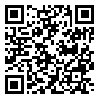Volume 27, Issue 3 (2025)
JAST 2025, 27(3): 529-541 |
Back to browse issues page
Download citation:
BibTeX | RIS | EndNote | Medlars | ProCite | Reference Manager | RefWorks
Send citation to:



BibTeX | RIS | EndNote | Medlars | ProCite | Reference Manager | RefWorks
Send citation to:
Pouratashi M. Benefits and Challenges of Agricultural Students’ International Research Collaboration. JAST 2025; 27 (3) :529-541
URL: http://jast.modares.ac.ir/article-23-72092-en.html
URL: http://jast.modares.ac.ir/article-23-72092-en.html
Department of Comparative Studies in Higher Education, Institute for Research and Planning in Higher Education, Tehran, Islamic Republic of Iran. , mah.pouratashi@gmail.com
Abstract: (1055 Views)
International collaboration is the key element to expand the horizons of knowledge and technology and to solve sustainability problems. To plan and implement this issue as effectively as possible, this study analyzed the lived experiences of agricultural students about the benefits and challenges of international research collaboration. This applied research used a mixed-method approach in two steps. First, an interview was done with PhD-agriculture students at the University of Tehran, who had published at least one article with international co-authorship in an international journal. Interviews were continued with 19 participants until the saturation point was reached. Interviews were transcribed and analyzed using the six stages of thematic analysis of Clarke and Braun (2006) and by conducting MAXQDA software. Secondly, a questionnaire was developed and conducted to investigate the importance of each of the items from the same 19 students who participated in the interview step. In this step, descriptive statistics were done by using SPSS software/ver23. Percentage, mean, and standard deviation were calculated for descriptive analysis. The findings showed that the international research collaboration had 24 benefit codes in the four dimensions of communication, scientific-research, academic, and personal-professional. On the other hand, 17 challenge codes were categorized into three groups of personal, motivational, and attitudinal group; managing the research and publication process; and cultural, technical, and economic group. Based on the means of benefits and challenges of students’ international research collaboration, the first ranks were “academic” with a mean of 4.06, and “personal, motivational, attitudinal” with a mean of 4.28 for benefits and challenges, respectively. According to the findings, building teamwork skills in higher education is recommended as it can positively promote students’ collaboration with others for research projects. This original and innovative study has theoretical and practical implications and value. The results are beneficial for universities to make decisions and plan activities that enhance students’ international research collaboration.
Article Type: Original Research |
Subject:
Agricultural Extension and Education
Received: 2023/10/23 | Accepted: 2024/01/1 | Published: 2025/05/7
Received: 2023/10/23 | Accepted: 2024/01/1 | Published: 2025/05/7
Send email to the article author
| Rights and permissions | |
 |
This work is licensed under a Creative Commons Attribution-NonCommercial 4.0 International License. |







